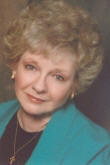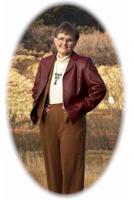
Let's pretend: You're resting in the mall after a shop-till-you-drop day–and you've dropped. Your feet hurt, your back aches, your head throbs. So you're having a latte while you sit there on one of the little white benches, indulging in what writers do involuntarily--or voluntarily, depending on your state of consciousness: you're people-watching.
You're slightly brain-dead, so at this stage everyone who happens by looks pretty ordinary. Not uninteresting--just ordinary. And it's rather a relief, no one catching your attention or sparking your imagination enough to make you start digging for your notebook. You're too tired, too wrung out to work.
But then--there she is. Someone who not only captures your attention but rivets it. She's young--probably no more than sixteen if that-–wearing an over-sized t-shirt and dirty jeans. As I said, she's young, but her eyes are old. Her mouth is hard, even angry. Her misery couldn't be more obvious if she were wearing a sign.
Your attention leaves the girl and fastens on the toddler she's dragging along--and she's literally "dragging" him. A little boy--perhaps two or a few months more. Dark curly hair, enormous brown eyes, dimples. He's adorable. Or at least he would be, if he were clean and his face weren't tracked by tears and smudges where he's been rubbing his eyes. He can't keep up with his (1) mother; (2) older sister; (3) aunt; (4) babysitter. He keeps looking up at her as if to explain that he's doing his best, he's trying not to lag behind, and why is she so angry with him anyway? Somehow those pleading looks arrow right to your heart.
You notice that his mother--you're a writer, and writers tend to make assumptions, so you assume the girl he's with is his mother--doesn't look at him. Her focus is straight ahead, but you sense she's really not looking where she's going. Instead, she's thinking about getting the boy home, where she can plunk him down for a nap and grab some sleep herself before time to go to work. Or maybe she's been searching for a job and this has been just another day of finding nothing. Or she's berating herself for getting into this fix in the first place--if she'd been smarter, she'd have made him marry her somehow. Or ... she might be thinking that she could just take the boy into the department store and leave him there to become someone else's problem while she runs, chasing the freedom she's never tasted, the youth her child has stolen from her.
Every few steps she gives the little boy another hard yank and a harsh scolding, and he wails a little louder. But he keeps looking up at her as if he's trying--desperately trying--to communicate with her, to let her know he wants to please her, and not understanding why she's unhappy with him ... again.
They're a spectacle, the two of them, hauling down the mall, both disheveled and visibly upset, the toddler crying, the mother spewing her fury at him. People turn and look with indignant or accusing stares that say they'd like to call Children's Services right there on the spot. The same thought crosses your mind. You're disturbed enough that you collect your shopping bags and get up to follow them. Even though you're walking behind, you can sense the girl's rage and the child's bewilderment and terror. His pain.
Your own emotions are doing battle: you're torn between compassion for the child, a longing to rescue him, and a natural outrage at the mother for her coldness, her harsh treatment of her little boy. Yet on another level you can't help but wonder just exactly what their situation is, and you even feel a nudge of pity for the young girl who's clearly in over her head. A child with a child.
Depending on which is stronger–-your outrage or your Good Samaritan instinct--you'll either hail a security guard and hope he can at least persuade the mother to calm down, or else you'll give up the pursuit and find another bench, where you'll sit and pray for them, the mother and the child.
But whatever else you do, do this: dig your notebook out of your purse. Yes, the notebook, the one you always carry with you and wouldn't be without. (You're a writer, remember? Writers always carry notebooks. Or AlphaSmarts. Or handhelds. Or something that will put words down for keeps.) Now, write down what you just witnessed. You don't have to get too detailed, just a sketch. But--and this is the important part--write down how the scene you just witnessed affected you. What you felt. The initial confusion. The subsequent anger and outrage. The heartache for the little boy. The attempt to understand the mother. The compassion for both of them. The urge to pray.
"But I'm not working on anything remotely like this." Most likely you're not. Perhaps you never will. But at some point there will almost certainly be a scene that calls for at least some of the emotions you've just experienced. Outrage. Anger. Heartache. Pity. Compassion. Your characters may bear no resemblance whatsoever to the mother and child you saw today. That's not important. It's the feelings you need to capture, the feelings that were running through you in such a torrent you found it difficult to contain them or control them. Record what this scene did to you--and then one day you can mine that notebook for these same emotions and use them for a scene in your novel, a scene with which you're struggling, struggling with feelings you can't quite capture solely out of your imagination.
For the writer, memories-–any kind of memories–-aren't so much about recalling what happened as remembering how you
felt when it happened ... and retaining those feelings for future reference. This is one way that God can filter through your writing genuine emotion, emotion that's truthful and real, the kind of emotion your readers can experience with the characters in the same way you experienced it.
For a reader to work through a character's struggle and share the emotions inherent to that struggle in ways that will resonate long after the novel has been returned to the shelf, the emotion has to be real, without a glaze of the artificial or contrived. And to avoid the plastic feelings and reactions that all too often distinguish a novel's characters, or to guard against the maudlin and overly sentimental writing frequently used to evoke emotion from the reader, the writer needs to be well-acquainted with the honest emotions that his characters experience.
This "memory notebook" can prove to be a veritable treasure chest of stored emotions and "real feelings" from which to draw whenever needed.
It's also an intriguing look at how the Spirit of God sometimes brings life and art together to speak to others, even while providing a barometer of your own heart.
-BJ Hoff, author of
An American Anthem and
An Emerald Balladhttp://www.bjhoff.com
http://www.bjhoffgracenotes.typepad.com



